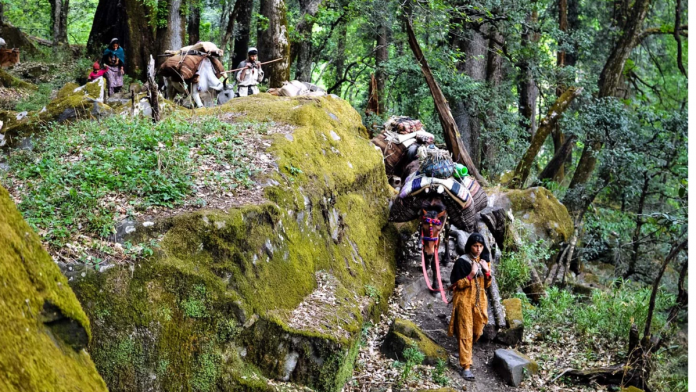News in brief:
– Van Gujjars, a traditional pastoralist community in Uttarakhand, India, plays a crucial role in preserving the ecosystem by creating small ponds and engaging in seasonal migrations with their cattle.
– Despite their vital contributions, the community face challenges due to climate-induced disasters, lack of recognition, and inadequate rights, highlighting the need for acknowledgment and support from the state.
In the hilly terrains of Uttarakhand, the Van Gujjars, a traditional pastoralist community, play a crucial role in preserving the delicate ecosystem. Their seasonal migrations and sustainable practices, like creating small ponds, help maintain water sources vital for both their cattle and wild animals.
As climate-induced disasters intensify, the Van Gujjars find themselves on the frontline. Devastating floods in 2023 wiped out their cattle and livelihoods, according to a media report, and the increasing forest fires pose a threat to the grasslands crucial for their cattle’s grazing.

Mohammad Safi, a respected figure in the Van Gujjar community, emphasises their indispensable role in sustaining Uttarakhandâs delicate ecosystem. Through their age-old practice of creating suuta, or small ponds, they ensure vital water sources for both their cattle and wild animals during the harsh summer months.
However, climate change exacerbates their challenges as springs dry up, depriving the community of essential water sources. The state’s failure to recognize and address the links between floods, fires, and dwindling water sources compounds the problem. The Van Gujjars, despite their vital role, face inadequate compensation and lack of recognition as pastoralists.
The community struggle goes beyond climate impact; they face exclusion from forest rights. The 2006 Forest Rights Act, meant to empower forest dwellers, has seen poor implementation in Uttarakhand, leaving the Van Gujjars marginalised. Despite their contributions to forest conservation, they are excluded from consultations on forest issues.



